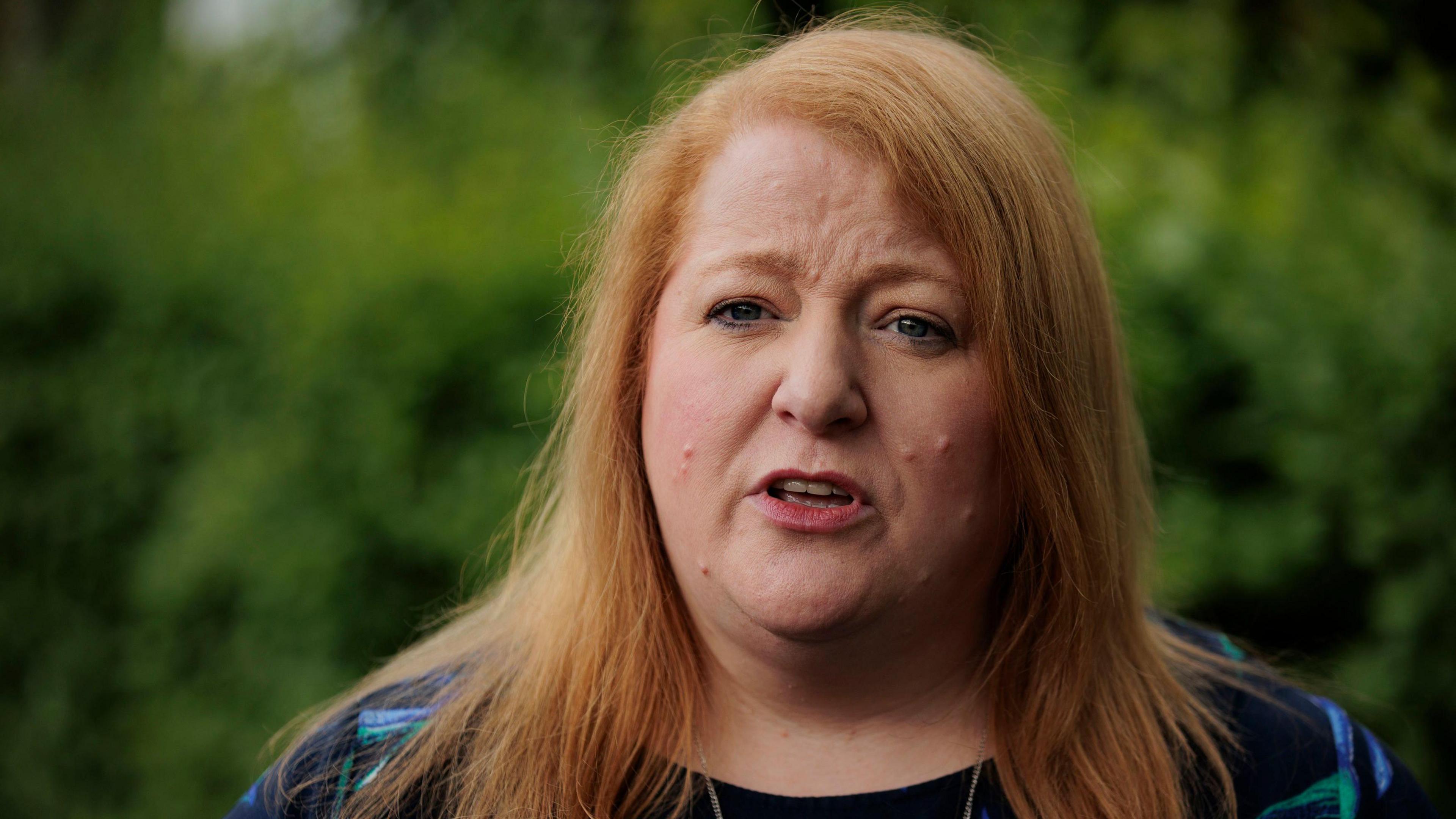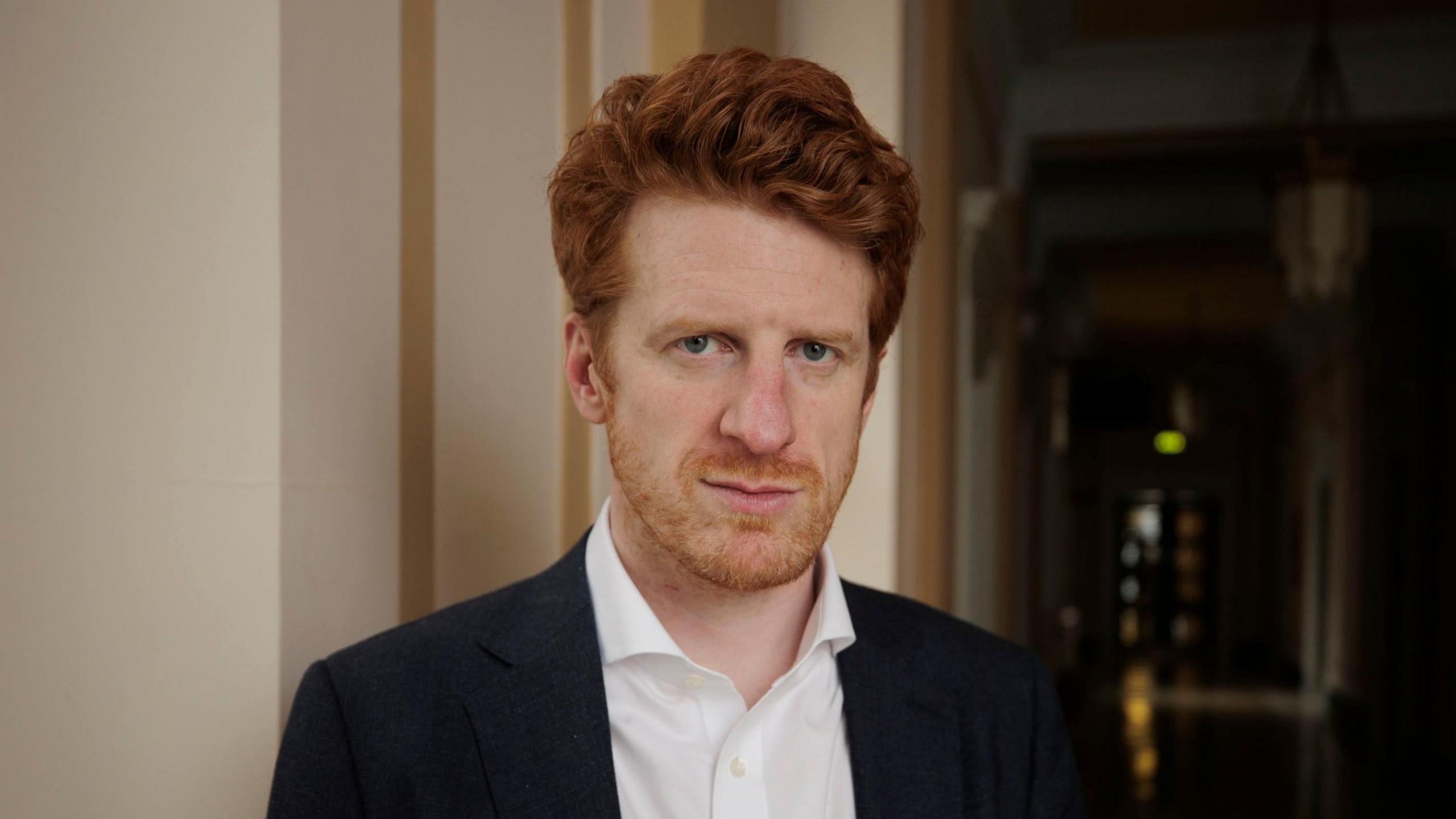PSNI pay deal possible before end of year, says Long

Justice Minister Naomi Long says a decision could be made in the next few weeks on a PSNI pay deal
- Published
The justice minister has said she believes she will be able to offer a pay award to Police Service of Northern Ireland (PSNI) staff by the end of this year.
Naomi Long has been speaking after Health Minister Mike Nesbitt announced on Thursday that he has been given approval to award pay parity to healthcare workers here.
Long said a decision on police pay could be made in the next few weeks.
"I'm confident that by the end of this year that we will be able to manage our budget successfully but also make the pay awards I believe the police deserve," Long said.
"I've been very clear that just because the police don't take and can't take industrial action doesn't mean they should be at the end of the queue when it comes to getting their funding.
"They put themselves between us and danger every single day and they deserve their pay awards."
Police officers in the UK have been banned from striking since the passage of the Police Act 1919.
Long said she believes "we can close the gap in justice".
"I believe it is possible, given what we've already been told," she told BBC News NI's Good Morning Ulster programme.
"So we're going to get £7 million for recruitment this year, we're also then in line for another £6.7 million towards pay. That will significantly reduce the projected overspend of PSNI," the justice minister said.
She added that it is "ultimately" for the chief constable to tell her it is affordable, adding: "It's not for me to tell him. He hasn't been in a position to do that. But when we are in a position to do that we will."
Speaking in October, Deputy First Minister Emma Little-Pengelly said the executive wanted to look at wages for other public sector staff, such as police officers, prison staff and transport workers.
'If we overspend this year, we have less next year'
BBC News NI understands that the executive has agreed that the Department of health can overspend its budget by £100m this year to meet the pay-related pressures.
Little-Pengelly said the Northern Ireland Executive had "taken extraordinary steps" because nurses "deserve fair pay".
However, she warned the arrangement "will have implications, including for next year".
When asked about the agreed health overspend, Long said she challenged her colleagues around the executive table "about the implications this will have on all of us next year, including on their own departments".
She added: "I believe our public sector workers, all of them, deserve to have their pay, and I will be continuing to engage in the coming hours and days and weeks with the chief constable, with the policing board to look at how we can make sure that that is delivered in full to the PSNI.
"I have to be sure that it's affordable, not just this year but next year, and that's the challenge for the executive.
"If we overspend this year, we have less next year and that makes next year's pay awards less affordable."
Long said the lesson learnt this year "ought to be that when we start the year every minister should do as I did and take account of potential pay awards when they set their budgets".
"That didn't happen in all departments, it has to happen in all departments and then we need to cup our spend to fit within the boundaries we are given."

Matthew O'Toole said he fears that the executive will find itself in the same place next year trying to resolve public pay pressures again
The chair of Stormont's finance committee and leader of the opposition, SDLP assembly member Matthew O'Toole, said he fears that the executive will find itself in the same place next year trying to resolve public pay pressures again.
"Successive Sinn Fein finance ministers - and health ministers - have had the opportunity to plan how to pay parity for health care staff," he said.
"They've never come up with a solution, all they do is kick the can down the road and blame each other - whether that's one another inside the executive or London.
"They need to take responsibility and grip this problem, it cannot happen again but I fear that it will."
PSNI funding difficulties
In recent weeks, the Police Federation for Northern Ireland (PFNI) chair Liam Kelly called on Northern Ireland Secretary Hilary Benn to "step in and sort out the chronic funding crisis" within policing.
On Friday, in a post on X, the PFNI said that while it welcomes that the pay award is being actively discussed, "unfortunately there are still no solid guarantees being proffered".
"Unlike the health pay announcement the words being used are still aspirational and wholly conditional that further money will be found."
In October, it was confirmed that the Treasury rejected a request from the Stormont Executive to help with the cost of paying hundreds of millions of pounds in compensation to police officers affected by a major data breach in 2023.
The PSNI has already accepted liability for the data breach, which occurred in August 2023, and talks over the settlement have been taking place for a year.
The PSNI is also seeking £200m for a recovery plan to boost officer numbers, which the Northern Ireland Executive has said it cannot presently afford.
The PSNI receives the majority of its funding from the Department of Justice out of the block grant.
There is a small additional contribution from the Northern Ireland Office (NIO) to deal with the national security threat and paramilitarism.
The PSNI currently has 6,200 officers and 2,200 staff.
There are also outstanding issues over legal costs related to resolving Troubles legacy cases.
A UK Government spokesperson previously said: "The chancellor has delivered the Northern Ireland Executive its biggest financial settlement since 1998 – worth £19.3 billion a year.
"As operational policing is a matter for the Northern Ireland Executive, they are responsible for compensating the police officers affected by this data breach."
- Published10 September
